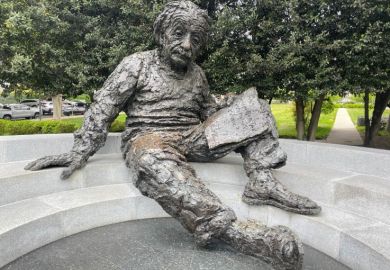Although Freudian theory has no intrinsic value, the ingenuity and gullibility of its apologists remain of interest. The author of Cassandra's Daughter is intermittently aware of the groundlessness of Freudian "science" and of the lunacy of the viciously warring factions - Kleinian, Lacanian and so on - Freud inspired. Despite this, the opening sentence of Joseph Schwartz's book invites us to believe that "psychoanalysis is arguably the single most important intellectual development of the 20th century". Even more incredibly, he asserts that "the analytic hour" (in which individuals pay a psychoanalyst to listen to, and impose a prefabricated interpretation upon their troubles) is an instrument analogous in its scientific power to Galileo's telescope. Those who argue against its findings are like those who denied what the telescope had revealed about the heavens. Schwartz's attempts to reconcile his suspicion that Freudian theory has a somewhat shaky scientific basis with his extraordinary claims about its contribution to human knowledge provide the chief interest of his history.
Among Schwartz's many ploys are attacks on the characters of those who oppose psychoanalysis. They do so because it is "the formalisation of work historically done by women in male-dominated societies of the West. Emotions and the subjective life have traditionally been the province of women." Its opponents cannot face a radically new vision of human nature emanating from without masculinist science. As for psychoanalysis being unscientific, this charge is founded on a narrow construction of what counts as a science. Science is only "a way of understanding" and this is precisely what psychoanalysis is; more precisely, psychoanalysis is a science "in the sense that it is an attempt to understand human subjectivity in material terms".
Moreover, the traditional sciences have failed to deliver on their promises. In his bill of indictment, Schwartz cites global warming, mass slaughter in world wars and increasing inequities in the distribution of wealth. Indeed, psychoanalysis, we learn, "is charged with cleaning up the mess (the industrial revolution) left behind". Another ploy is to credit Freud with insights into human behaviour and the mind that antedated him. An example is the concept of transference that, Schwartz seems unaware, people noted in everyday life long before Freud made it so central to his doctrines. All Freud did was to embed it in crackpot theories about the infant's lust for its unwitting parent(s) - though transference is plausibly explained by standard learning theory - and provide counterfeit facts to prop up his theories.
Schwartz's fancy footwork is to no avail. For his patchy, gossipy history - journalism rather than scholarship - is more honest than his arguments. He offers us a parade of charismatic leaders quarrelling bitterly with each other's dogmatic assertions. Analyst A asserts that human behaviour is explained by "instinct vicissitudes" while analyst B asserts the primacy of interpersonal relations. Soon everyone is scratching everyone else's eyes out. The endless, poisonous conflicts between psychoanalytic factions are a ghastly worked example of what happens when a would-be science proceeds in the absence of a truly scientific method: disagreement degenerates into mutual abuse. As Schwartz notes, "the participants analysed not each other's arguments but their reasons for making them".
Melanie Klein's carpet-biting rages at colleagues who would not believe her assertion that all infants were totally possessed by cannibalistic impulses must have been terrifying. While Schwartz describes Klein's views on infants as part of the "breakthrough in Britain", he does not discuss whether there was any better evidence for them than the vicious attacks she directed at those who disagreed with her. Instead, he gives us a potted history of Hungary just after the first world war, which may or may not (probably not) have had something to do with Klein's terminally sour view of humanity.
Set against the views of lunatics such as Klein, the common-sense assertion by John Bowlby and Ronald Fairbairn (for whom Schwartz seems to have a special sympathy) that we are fundamentally "relationshipseeking" (in other words, people matter a lot to people) seems like a revelation. Unsurprisingly, for Klein and her many followers this was an evil heresy: it undermined the cornerstone of Sigmundism, according to which human behaviour had to be explained by our socially unacceptable biological instincts and their vicissitudes during the infant's socialisation.
Klein's doctrinaire refusal to accept that our feelings are often promoted by external reality rather than the inner world of imaginary objects was illustrated, rather horribly, by her attitude to her own little boy's fears about going to school. Six-year-old Erich's anxieties were the understandable result of his being tormented by other boys for being Jewish. Klein saw it differently. When Erich dreamed of a way of getting to school without encountering his tormentors, she interpreted this as revealing "his idea of being procreated by his father, amalgamated by the idea of coitus on his own part". Not much comfort, one would have thought, to the little boy. But then, as Klein said, "Analysis is not itself a gentle method: it cannot spare the patient any suffering and this applies equally to children". And equally to one's own children.
This small example is a vivid reminder that the history of psychoanalysis is not entirely comic. Little Erich stands for those many abused people who - since Freud demonstrated how theory may be made to triumph over fact, and the patient's viewpoint and testimony crushed under the juggernaut of pseudo-science - have had the real causes of their sufferings ignored by psychoanalysts and their miseries consequently exacerbated. Such cases highlight the irresponsibility of those many defenders of psychoanalysis for whom the baselessness of Freud's theories can somehow be finessed. The recovered memory movement, stopped in its blood-stained tracks only by lawsuits and threats to the income of its practitioners, underlines just how unfunny psychoanalysis is.
Raymond Tallis is professor of geriatric medicine, University of Manchester.
Cassandra's Daughter: A History of Psycho-analysis in Europe and America
Author - Joseph Schwartz
ISBN - 0 713 99158 5
Publisher - Allen Lane The Penguin Press
Price - £20.00
Pages - 352
Register to continue
Why register?
- Registration is free and only takes a moment
- Once registered, you can read 3 articles a month
- Sign up for our newsletter
Subscribe
Or subscribe for unlimited access to:
- Unlimited access to news, views, insights & reviews
- Digital editions
- Digital access to THE’s university and college rankings analysis
Already registered or a current subscriber? Login



